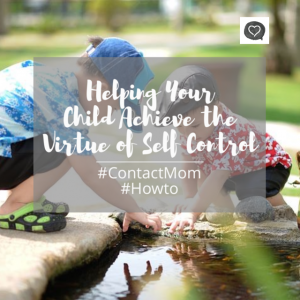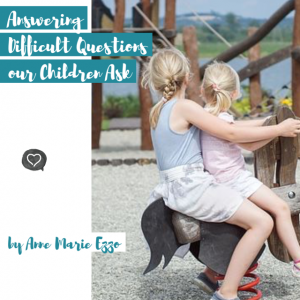Verbal Freedoms
posted in: Moral Training, Training
0
What are verbal freedoms? How do you know if your children are taking freedoms that don’t belong to them? What do you do about a child who has too many verbal freedoms? In this two-part blog, we’ll look at verbal freedoms.
A young mom once contacted me for advice about the recurring tantrums her 3 1/2 year old was throwing. Almost every time he received a consequence for some misdeed, he would have a meltdown. We arranged to spend some time together to see if I could help her figure out why this was happening. This little guy was talkative, charming, and sweet. He was precocious in both knowledge and language development. Mom had been working on the principle of first-time obedience and her son came to the call of his name with a “Yes, Mommy, coming,” about 60-70% of the time. As a stay-at-home mom, she regularly spent time teaching and training her son and his siblings. What we discovered after some time together was that her talkative son was outside the funnel* in mainly one area: verbal freedoms.
Recognize the Problem
Here are some common ways children take verbal freedoms:
Frequently using phrases such as…
- “Yeah, I know.” This phrase cropped up at times of instruction as well as in general conversation. Even when it was new information, this little one frequently responded with a “yeah, I know.” Clearly he thought he knew a lot.
- “I was just going to….” This was often spoken when his mother gave him a task to do and he wanted to let her know what he was planning in the moment. Often he would modify whatever his mom asked him to do; e.g. “Put on your rain boots to go outside,” was answered with, “I was just going to wear my play shoes.”
- “Why?” He would ask why when he knew why or had just been told why but was looking to keep the adult engaged and the conversation centered on his interests.
Other verbal freedom include:
- frequently repeating the same question, even after it has been answered
- correcting adults when they misspeak and sometimes when they don’t
- telling the parent what he is going to do instead of asking permission
- bossiness when playing with others
- constantly expressing an opinion or giving information
- interjecting thoughts into adult conversations
- talking over others and not using the interrupt rule
- negotiating for something other than what the parent originally said – this can be in the smallest of details and is easy to overlook
- failing to say “Yes, Mom” (or Dad) after being called or receiving instruction and/or saying something else instead
In most if not all of his communication, my little friend was very pleasant and engaging. His tone was rarely argumentative even when he was talking back. His reasonable tone made it difficult at times to identify the exact problem with what he said.
How can too many verbal freedoms lead to tantrums?
1 Corinthians 8:1 “…Knowledge puffs up…”
Children under 5 are not mature enough to distinguish between moral and non-moral choices or ideas. When they are allowed the freedom to speak, do, or choose as they please in one area, they assume they are wise enough to do so in any area. Such freedom is beyond their developmental maturity and leads the child to have an erroneous confidence in himself and his own knowledge. The biblical term for this is being “wise in one’s own eyes.” A child who thinks more highly of himself than he ought will often respond in anger when crossed. Too much freedom, verbal or otherwise, keeps the child from recognizing his parents’ authority over his choices and can lead to tantrums when he disagrees with Mom or Dad’s decisions.
Do you have a child who has too many verbal freedoms? Are you now recognizing some areas where your child has been subtly challenging your authority through his speech? In part two of this blog, we’ll look at how to correct this problem.
*If you are unfamiliar with the concept of “the funnel” check out these blogs:
https://christianfamilyheritage.org/your-childs-perception-is-everything/
https://christianfamilyheritage.org/help-i-dont-know-how-to-use-the-funnel/




